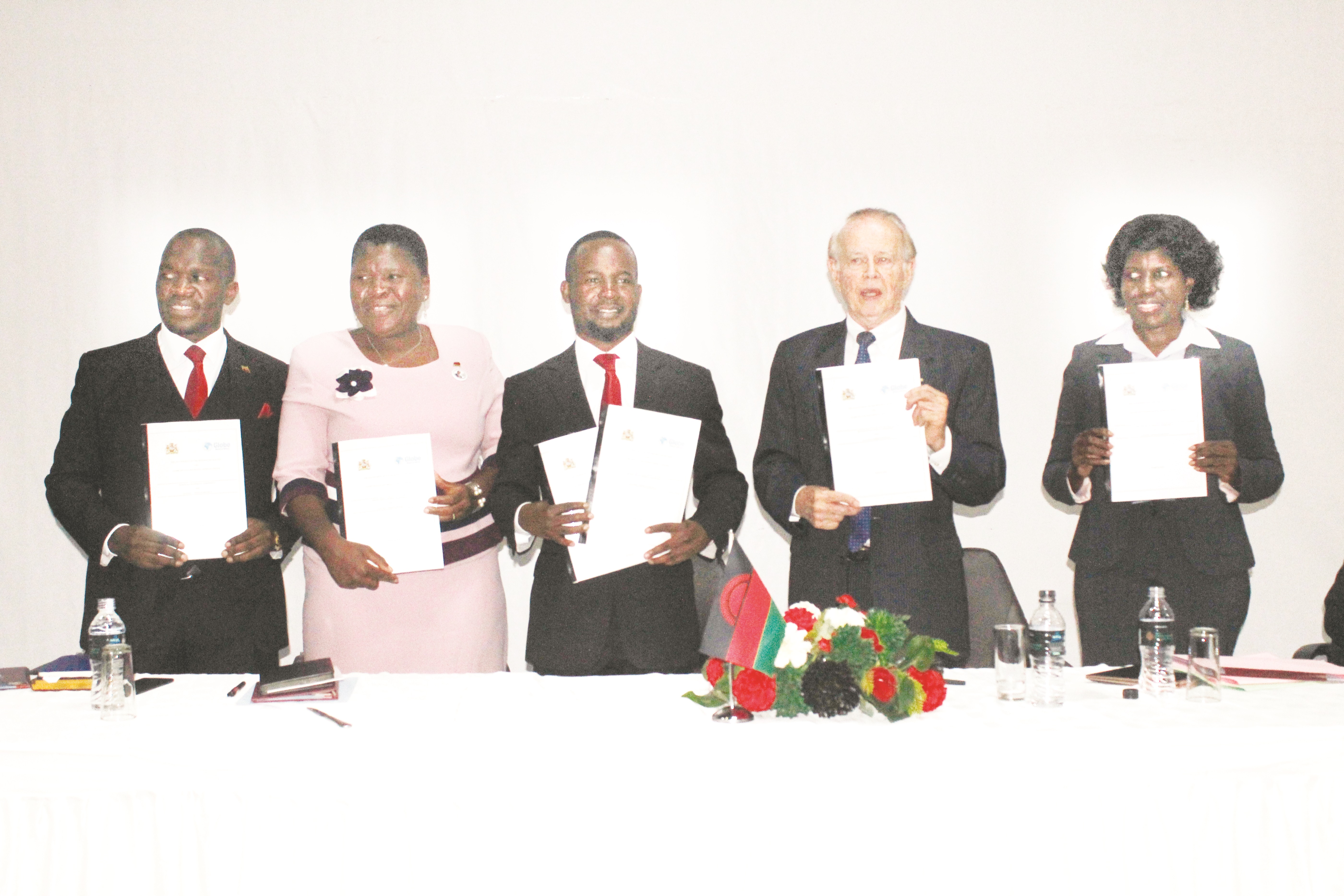
Mining
Globe secures US$10-million funding for Kanyika Niobium Project
January 21, 2025 / Modester Mwalija

Globe Metals signed a Mine Development Agreement with Malawi Government
ASX-listed Globe Metals & Mining says it has signed a non-binding term sheet agreement with South Africa’s Industrial Development Corporation (IDC) for a US$10-million convertible loan available partly in South African rand (ZAR) and partly in US Dollar, marking a significant step towards the early development of the Kanyika Niobium Project in Malawi.
Globe’s CEO Paul Smith announced this in a statement saying the US$10-million loan constitutes 22% of the US$46-million required for the project’s initial development phase which will be supplemented by $15 million in senior debt financing from Ecobank Malawi, announced earlier this year, bringing the total funding secured so far to 54%.
He explains that the funding will contribute to essential project activities, including an updated bankable feasibility study (BFS), detailed front-end engineering design (FEED) and specific early works required for the project’s advancement.
“The planned funding from IDC allows us to execute crucial components of Kanyika’s development plan, bringing us closer to the project’s Phase 1 development, anticipated to commence in the first half of 2025,” says Smith.
Smith highlights that the term sheet gives IDC the right to convert the loan into equity, securing up to a 25% stake in Globe’s Malawian subsidiary (Project HoldCo) and up to a 19.9% equity in Globe itself.
“This adds credibility to the Kanyika Niobium Project, while reducing risks and attracting further strategic investors,” he says.
Smith says in order to facilitate the funding process, the loan will be drawn in four tranches, with each tranche subject to specific conditions. Tranche one will depend on customary drawdown conditions, including the registration of security while tranche two will require acceptance of the BFS report by the Steering Committee. Trenches three and four will hinge on the approval of the Resettlement Management Plan by Malawi’s Ministry of Lands and before IDC’s funding is drawn, Globe plans to use bridging finance to initiate key pre-development activities, with the intention of repaying the bridging funds once the loan is fully accessible”.
He explains that Globe’s partnership with IDC is seen as a significant milestone for Malawi’s mining sector as it is promoting cross-border collaboration and advancing the sustainable development of niobium, a critical mineral used in high-performance materials.
“With IDC’s support, we are not just securing financial resources but we are building credibility that will draw more investors and set a benchmark for responsible mining practices in the region,” says Smith.
He says the agreement also demonstrates Malawi’s growing appeal as an investment destination for critical minerals.
As Globe advances the Kanyika Niobium Project, the country is set to benefit from increased investor confidence and the development of a sustainable mining sector.
With Phase 1 activities slated to begin in 2025, the project is expected to generate economic opportunities, including job creation and infrastructure development.
The Kanyika Niobium Project (KNP) this year became the first mining project in Malawi’s history to comply and implement the Community Development Agreement (CDA) since the new Mines and Minerals Act- 2023 came into being.
This follows the signing of the long-awaited CDA between the Kanyika Qualified communities (in Mzimba and Kasungu) and the company-Globe Metals & Mining.
Section 169 subsection 1 of the Act stipulates that “a holder of a large-scale mining licence shall assist in the development of qualified communities affected by its operations to promote sustainable development, enhance the general welfare of the quality of life of the inhabitants and shall recognise and respect the rights, customs and traditions of the local communities that are consistent with the constitution.”
Subsection 3 adds that no holder of large-scale mining licence shall proceed to do commercial production before the ratification of the CDA by the qualified affected community. Globe enjoys good relations with the local community of Kanyika, and this relationship has, among other things, seen the company donating learning materials such as desks and chairs to local schools.
Globe, which has a mining licence for the Kanyika multicommodity deposit, also signed a Mine Development Agreement with the Malawi Government. The Company also announced plans to produce high-grade and Tantalum products in Malawi at a Lilongwe-based refinery.
By producing Niobium and Tantalum oxides within Malawi for export to world markets the Kanyika Mine will add significantly to the country’s foreign exchange earnings, boosting the Balance of Payments account and raising the National GDP.
The move by Globe follows extensive research and test-work over the past many months, reviewing and fine-tuning refining technologies to optimise engineering designs for the mining and concentrate recovery processes which are aimed at maximising value from the Kanyika orebody.
By changing the refining technology to a benign process based on the use of chlorine - which is environmentally sustainable and cost-effective - Globe will be able to produce high purity products that attract premium prices from international buyers in the speciality metals markets.
The benign chlorination technology was perfected by Globe’s research partners, and its use in Malawi to produce high-purity metal oxides will replace the original plan for Hydrofluoric Acid (HF) recovery process at a refinery to be located in the United Arab Emirates.































